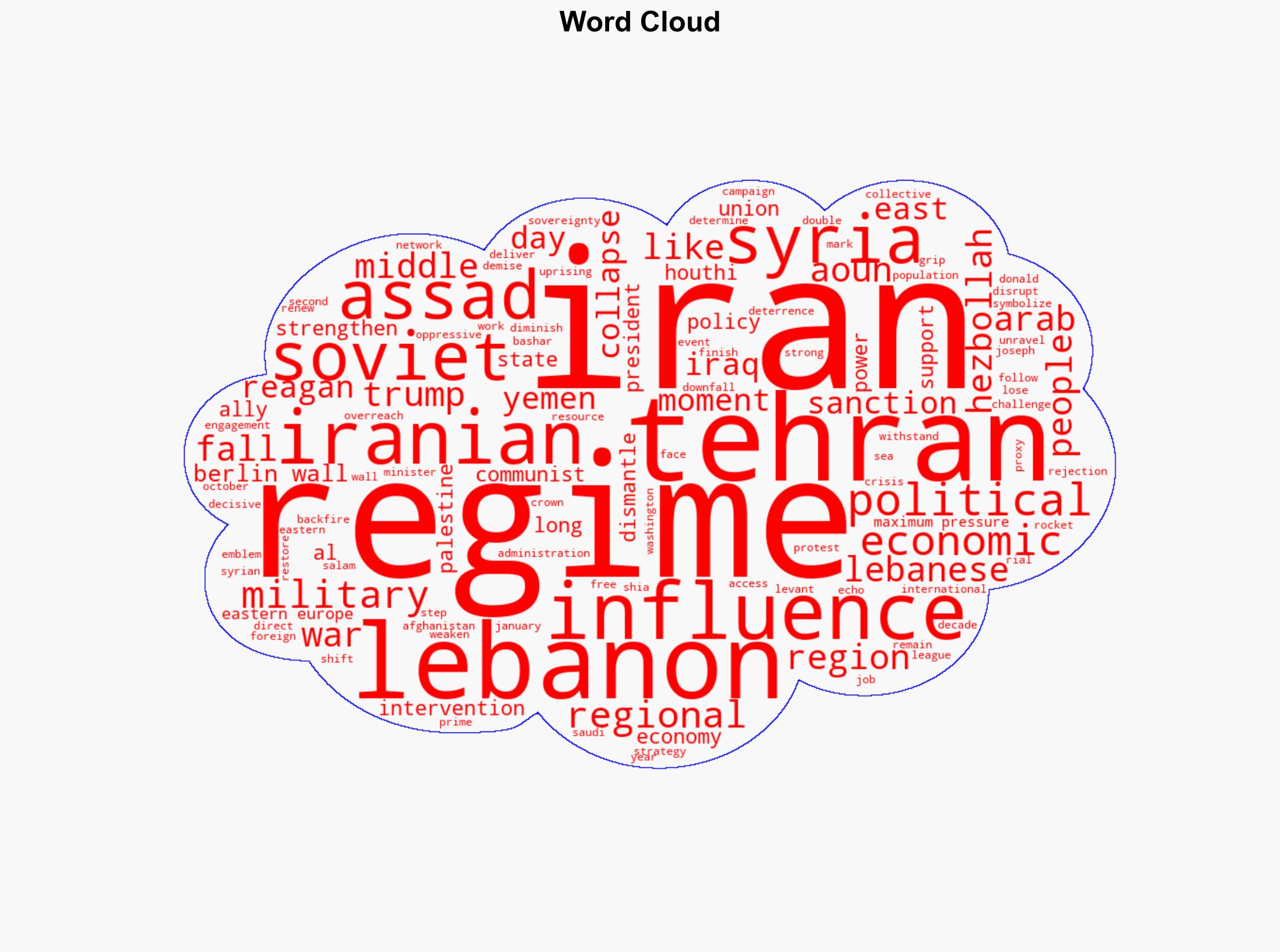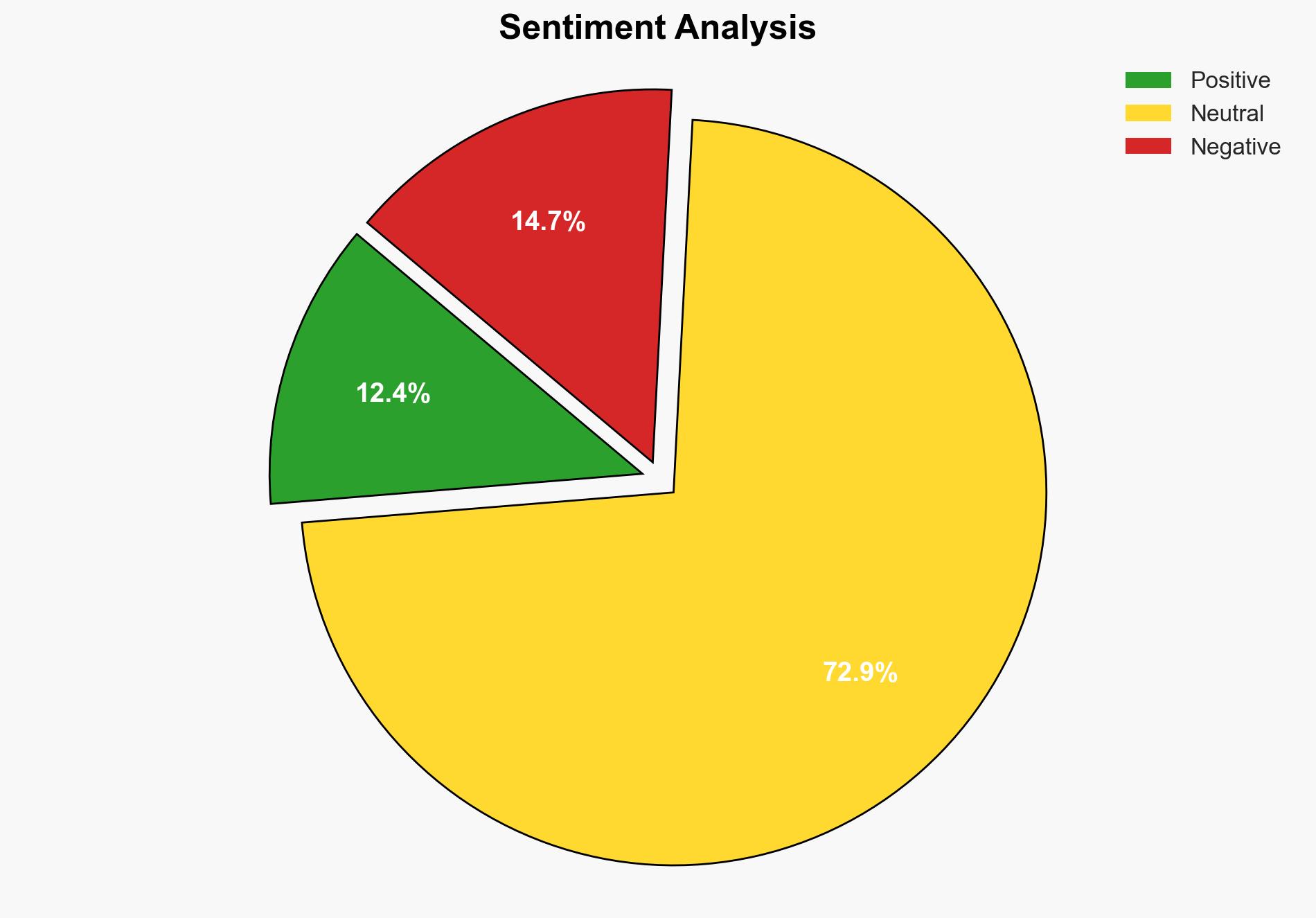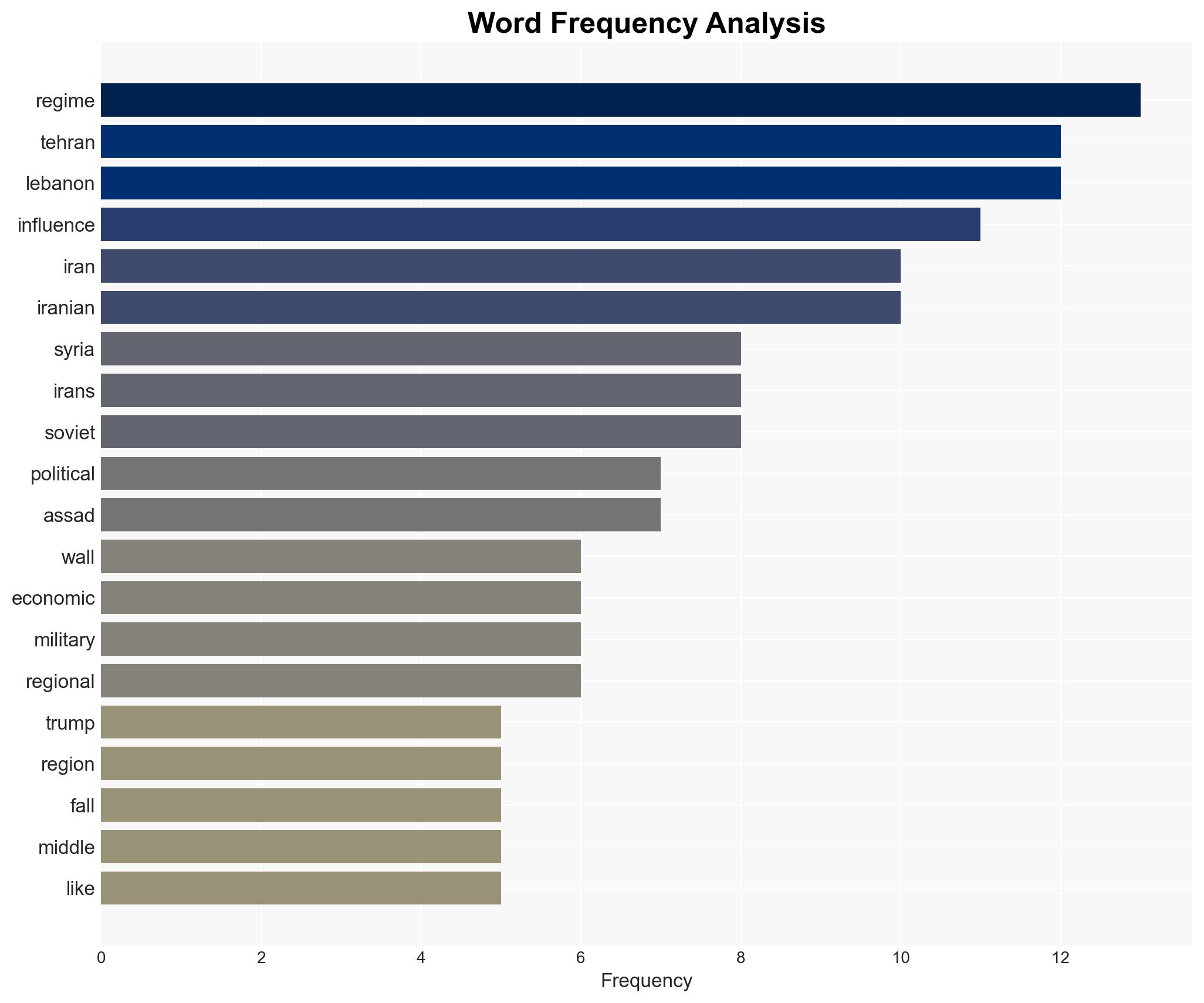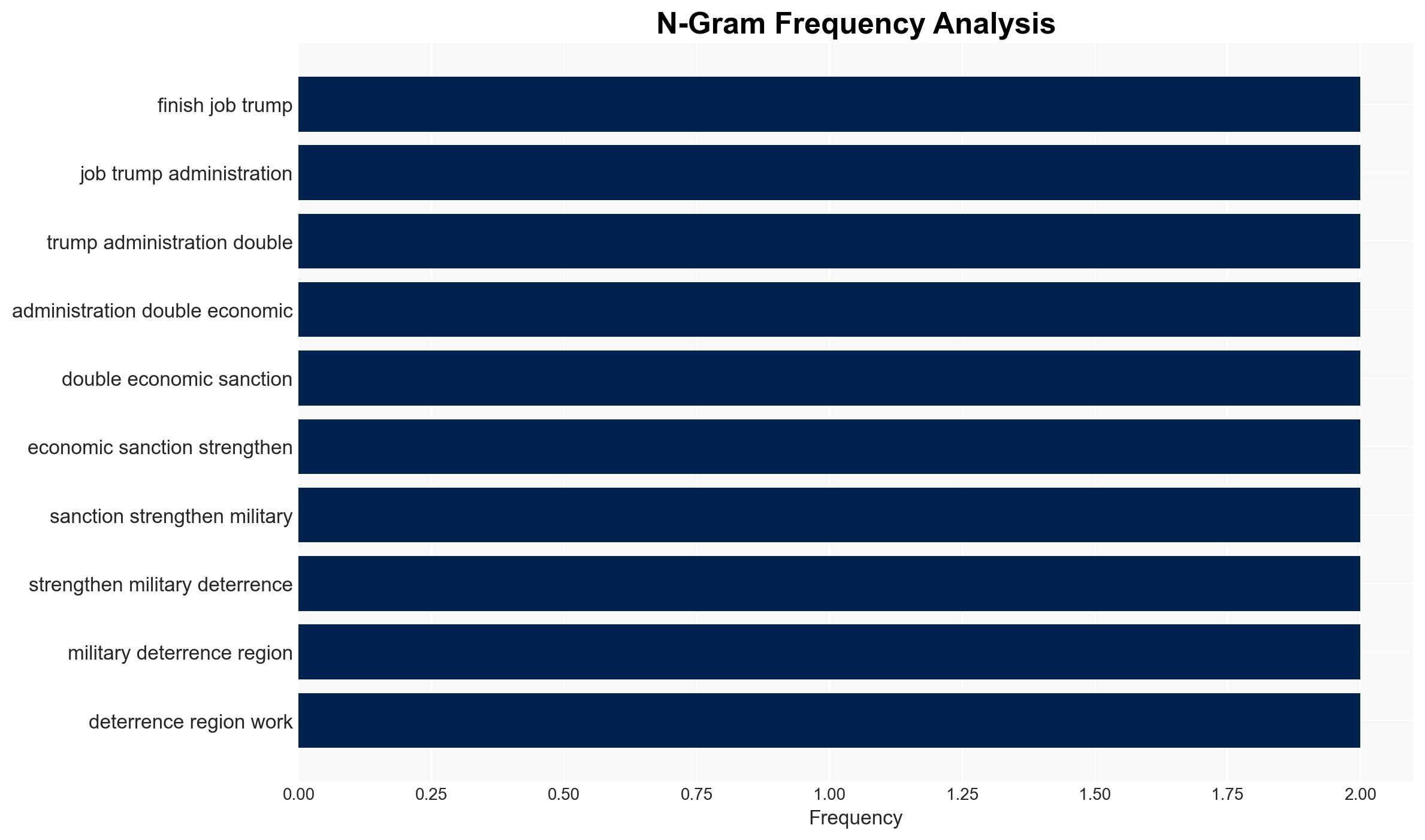Tehrans Berlin Wall Moment Unfolds in Syria and Lebanon – The National Interest
Published on: 2025-04-09
Intelligence Report: Tehrans Berlin Wall Moment Unfolds in Syria and Lebanon – The National Interest
1. BLUF (Bottom Line Up Front)
The geopolitical landscape in the Middle East is undergoing a significant transformation as Iran’s influence in Syria and Lebanon diminishes. This shift is reminiscent of the fall of the Berlin Wall and the subsequent collapse of Soviet influence. The coordinated efforts of regional allies, bolstered by economic sanctions and military deterrence, are dismantling Iran’s strategic foothold. The recent political developments in Lebanon, including the election of Joseph Aoun and the appointment of Nawaf Salam, signal a rejection of Tehran’s influence. These events suggest a potential collapse of Iran’s hegemonic aspirations, mirroring historical precedents.
2. Detailed Analysis
The following structured analytic techniques have been applied for this analysis:
General Analysis
Iran’s strategic interventions in the Middle East, particularly in Syria and Lebanon, are facing unprecedented challenges. The collapse of the Bashar al-Assad regime in Syria and the political shifts in Lebanon are critical indicators of Iran’s waning influence. The economic strain of supporting regional proxies, coupled with increased sanctions, has eroded Tehran’s power. This situation parallels the Soviet Union’s overreach in Afghanistan, which contributed to its downfall. The regional shift is further compounded by the emergence of leaders like Joseph Aoun and Nawaf Salam, who symbolize a move towards sovereignty and reform.
3. Implications and Strategic Risks
The decline of Iran’s influence poses several strategic risks and implications. The potential collapse of its regional proxies could lead to instability and power vacuums, affecting national security and regional stability. Economically, the reduction of Iranian influence may open opportunities for investment and development in the region. However, the transition period could be marked by increased volatility and conflict as power dynamics shift.
4. Recommendations and Outlook
Recommendations:
- Enhance diplomatic engagement with emerging leaders in Lebanon and Syria to support their transition towards stability and sovereignty.
- Continue to apply economic and political pressure on Iran to deter further regional adventurism.
- Strengthen regional alliances to ensure a coordinated approach to security and economic development.
Outlook:
In the best-case scenario, the region stabilizes with new leadership fostering economic growth and political reform. In the worst-case scenario, power vacuums lead to increased conflict and instability. The most likely outcome involves a gradual reduction of Iranian influence, with regional powers stepping in to fill the void, leading to a complex but manageable transition.
5. Key Individuals and Entities
The report highlights the significance of individuals such as Joseph Aoun and Nawaf Salam, whose recent political roles in Lebanon are pivotal in the shift away from Iranian influence. Additionally, the fall of the Bashar al-Assad regime in Syria marks a critical juncture in the region’s geopolitical dynamics.





